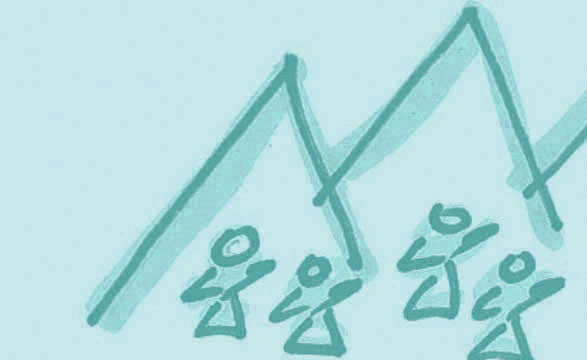Building a Sense of Belonging
Through our 20 years of working with immigrants and refugees, we have come to understand the centrality of building a sense of belonging as a crucial element for fostering civic, political and, in some instances, economic engagement. This tool shares some of the actions we at the Pan-Valley Institute have taken to help foster a sense of belonging.
We know that for immigrants, and indigenous people in particular, culture and art are embedded into their lives as an integral part of who they are. The very practice of traditional culture and art supports immigrants in developing a sense of belonging and builds individual and collective agency in their new world. We strongly believe that nurturing a sense of belonging and supporting diverse forms of public expression are essential in motivating civic and political engagement.
One way this can be accomplished is by creating community spaces where immigrants and refugees feel welcomed and respected. These spaces should be places where they can express their own creativities, where they can dialogue and have an outlet for expressing their world views in their own voices. By providing these spaces, we can facilitate processes for building a sense of community belonging that will inspire sociopolitical, cultural and economic engagement.
Building a sense of belonging has been a central intention behind our cultural organizing practices in the form of cultural exchanges, cultural kitchens, the Tamejavi Festival and the Tamejavi Culture and Arts series. These practices have provided immigrants and refugees spaces and opportunities for:
• sharing a journey, celebrating cultures, speaking and telling stories with their own voices
• defining terms of inclusion
• becoming part of something while respecting cultural identity
• highlighting and validating immigrant contributions to the economy, culture and history of the Central Valley
• regaining a sense of home and celebrating their own heritage
• decolonization by regaining cultural pride, embracing their own culture, building cultural knowledge, addressing issues of cultural loss
• humanizing and dignifying the immigrant story and narrative
• instilling cultural appreciation, both internal and external
• providing an intimate place for cultural sharing and expression for communities whose history of colonialization generate cultural shame
“The idea of belonging comes before citizenship. If you don’t feel part of this community, you are unlikely to invest in this community, and not only financial investments. If people don’t feel part of the community, or are not accepted as part of society, there is a problem with exercising citizenship.”
Kamal Abu –Shamsieh


Principles
• Believe in peoples’ creativity
• Listen for emotions and surroundings as different ways of communicating
• Value peoples’ stories

Tips
• Believe in the power of culture as an agent for social change

References
• The Theory Behind Our Work booklet
• Cultural Organizing folder
